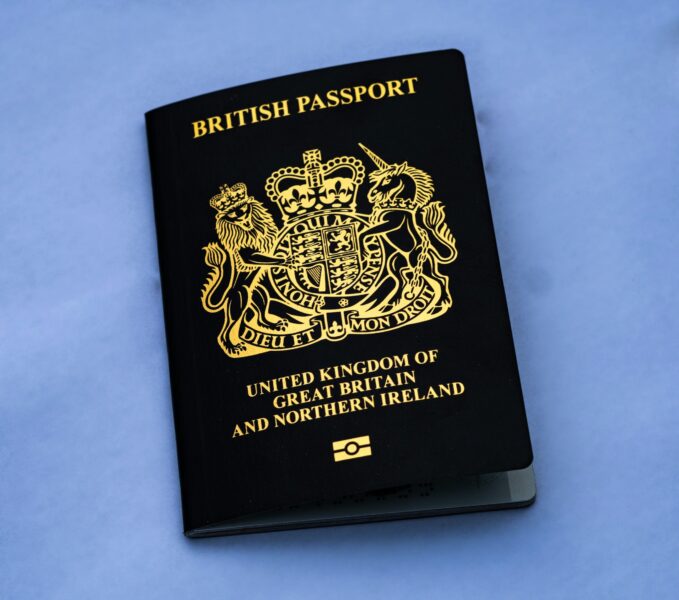As of April 2025, the United Kingdom has introduced significant changes to its immigration policies, impacting visa application fees, entry requirements, and recruitment processes in the health and care sectors. These adjustments aim to streamline the immigration process, align with current economic standards, and enhance national security. Here’s an overview of the most notable changes effective from April 2025:
1. Care Providers Must Prioritise UK Talent
Starting 9 April 2025, care providers must first attempt to recruit workers already in the UK on the Skilled Worker visa route before seeking workers from abroad. This change prioritises local talent and aims to address labour shortages within the care sector. As a result, care providers will need to be prepared to provide proof of their attempts to recruit from within the UK. Employers in this field will need to adjust their recruitment strategies to comply with the new requirements.
2. Increased Salary Threshold for Health & Care Workers
From 9 April 2025, the minimum salary threshold for health and care workers on the Skilled Worker visa route will rise to £25,000. This increase will affect entry level roles, such as Band 3 positions, which will no longer meet the salary requirements for a Skilled Worker visa. Consequently, employers will need to reassess salary offers to meet the new threshold. Additionally, the going rates for healthcare and education occupations will rise to align with the updated minimum salary, impacting budget plans across these sectors.

3. Sponsorship Costs: Employers Face More Responsibility
As of 31 December 2024, UK employers can no longer pass certain sponsorship costs onto skilled workers. Specifically, employers must absorb the costs of:
- Sponsor Licence Fees (for new applications or adding the Skilled Worker route)
- Certificate of Sponsorship Fees (for assignments from 31 December 2024 onwards)
While employers can still recover costs such as visa application fees and Immigration Health Surcharges, the new rules aim to prevent work related debt and exploitation. Employers who fail to comply risk losing their sponsor licence, resulting in financial and reputational consequences. Therefore, businesses must review their policies and contracts to ensure compliance with these changes.
4. Introducing the Electronic Travel Authorisation (ETA)
From 9 April 2025, all visitors to the UK (except British and Irish nationals) will need to apply for an Electronic Travel Authorisation (ETA). Similar to the US ESTA system, the ETA will apply to travellers who don’t require a visa for short stays, including tourism and business. The application fee will increase from £10 to £16. As a result, employers should review their travel needs to ensure that overseas employees secure the required ETA before travelling.
This change reflects the UK’s commitment to enhancing border security and making travel more efficient. Starting from 2 April 2025, European nationals will also need an ETA to enter the UK.
5. Transition to Digital Immigration with eVisas
The UK has already begun transitioning to a fully digital immigration system. From 31 March 2025, the Biometric Residence Permit (BRP) will be phased out in favour of digital eVisas. The transition started in 2024, and the BRP will no longer be valid for international travel after 31 March 2025. Employers should ensure their employees with a BRP set up an eVisa account to manage their immigration status online. This shift to eVisas aims to streamline the immigration process and provide workers with easy access to evidence of their right to work and travel.
6. Work Visa Fees Are Increasing
Work visa application fees will rise from 9 April 2025. The following increases are particularly notable:
- Skilled Worker (3 years or less): £719 to £769
- Skilled Worker (over 3 years): £1,420 to £1,519
- Health & Care Worker (3 years or less): £284 to £304
- Health & Care Worker (over 3 years): £551 to £590
Employers should factor these increases into their recruitment budgets, as the higher fees will affect the overall cost of securing and sponsoring workers from abroad.
7. Graduate Visa Changes and Right to Work Checks
Changes to the Graduate visa route will also impact employers. As of 22 November, the “Tier 4” student graduate switch to the Skilled Worker visa route is no longer available. Instead, employers must use the new Certificate of Sponsorship (CoS) category: “Skilled Work (Student course complete switching to Skilled Worker).” The Graduate visa remains a flexible option for hiring international graduates, but employers must ensure they use the correct category when sponsoring graduates.
In addition, the scope of right to work checks has expanded. Employers now need to ensure that checks are conducted for workers on service contracts and apprenticeships, not just direct employees. Failure to carry out these checks correctly could result in penalties.
How the Changes Impact Employers
The UK’s immigration system is evolving rapidly, and these changes present new challenges and opportunities for businesses. Employers must stay ahead of these updates to remain compliant while continuing to attract top talent from around the world. From rising visa fees to the roll out of the ETA scheme and the shift to eVisas, it’s crucial to stay informed.
For businesses navigating these changes, 360 Law Services offers expert advice and support. Whether you’re recruiting internationally, managing visa applications, or ensuring compliance with the latest immigration regulations, our experienced team is here to help. With a focus on safeguarding your business interests, 360 Law Services provides tailored solutions to ensure smooth immigration processes and legal compliance.



